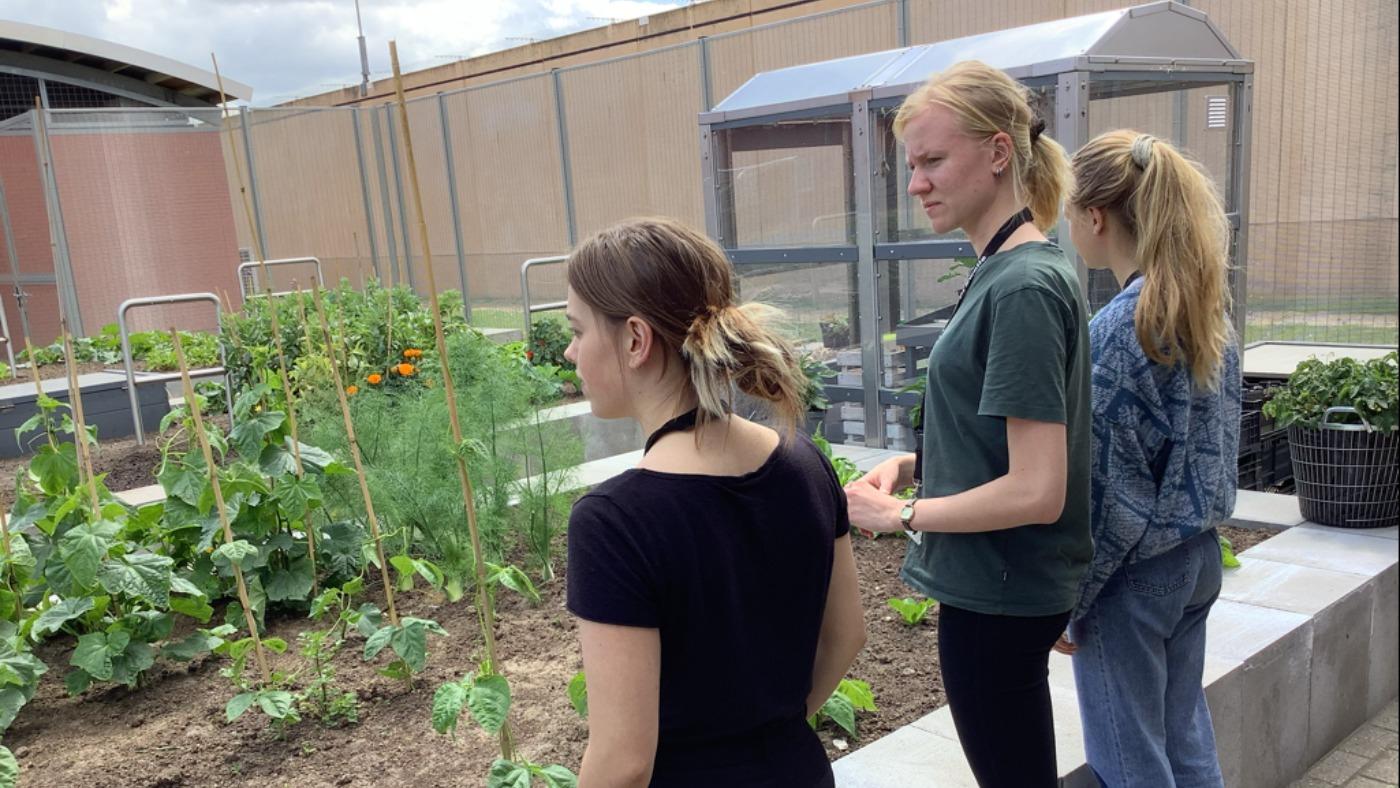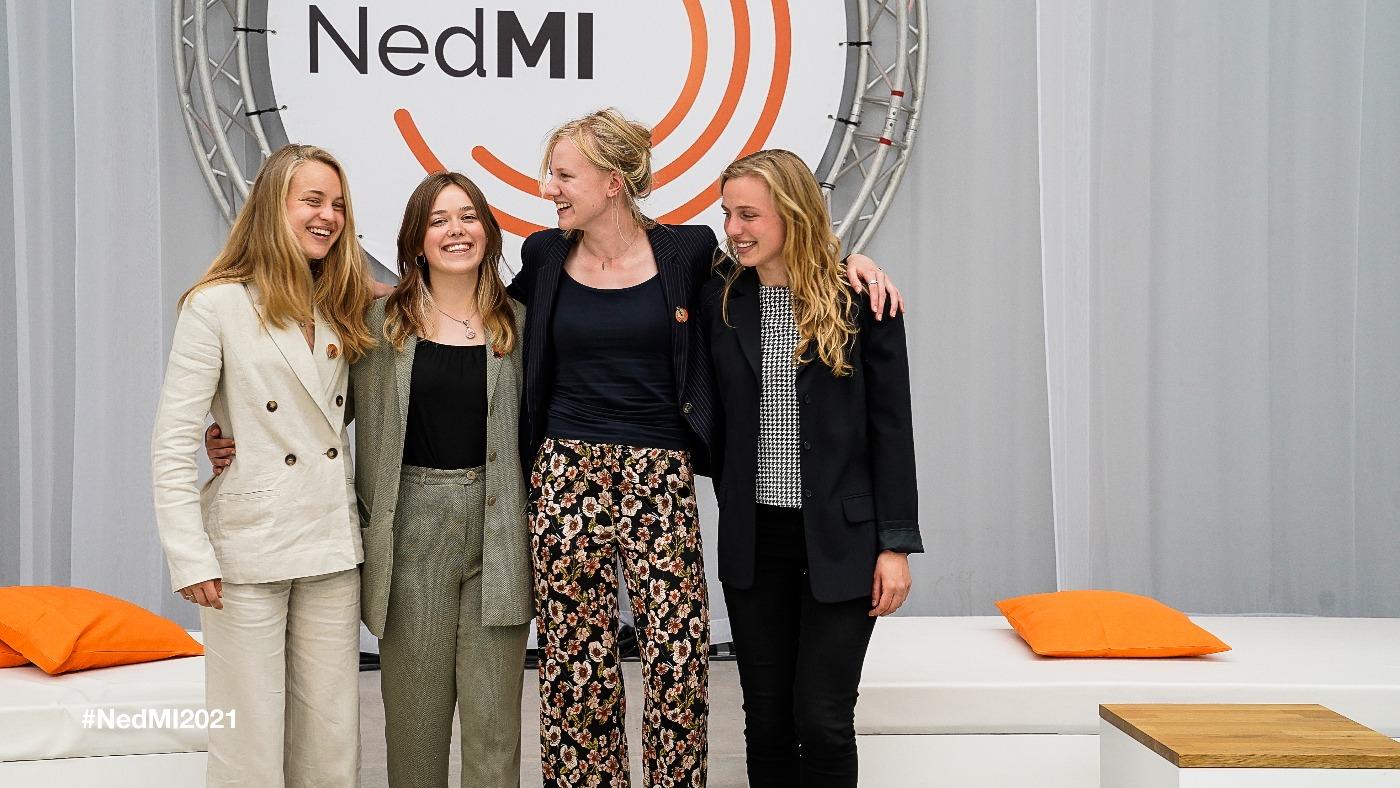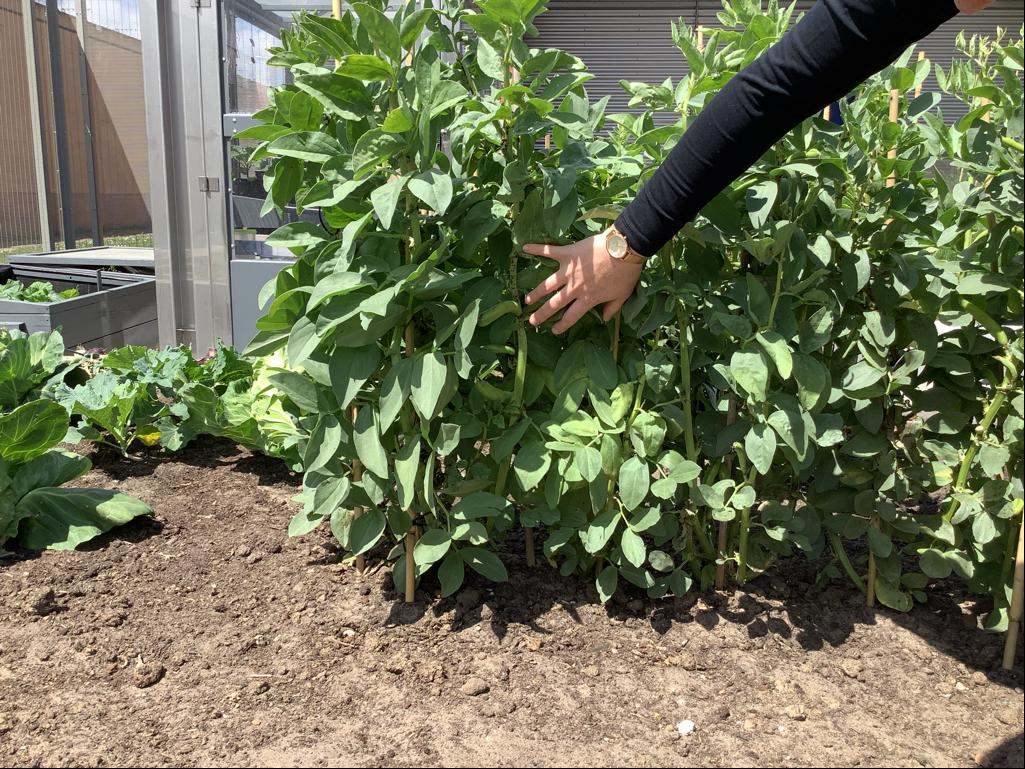Students create foundation to garden with prisoners
Green fingers in prison

Plant for Tomorrow (in Dutch, Plantje voor Morgen) aims to make prisons greener and more sustainable. Its founders are four young women in their early twenties: Wiep, Paula, Nynke and Elaine. The last two are UU students: Nynke studies Natural Sciences and Innovation Management and Elaine studies Global Sustainability Science. Wiep studies in Wageningen, while Paula is a recent graduate.
Scientific literature tells us that a green environment can exert an incredibly positive influence on our mental and physical health, which is why Plant for Tomorrow organises workshops about topics like gardening and sustainable cooking in prisons. The foundation has just completed a successful collaboration with the Penitentiary Institution (PI) in Zwolle, for example.
But how did such an idea come about for these four students? Elaine van Helvoort says that's a good question. She is the communications manager of the foundation. “Two years ago, I would not have expected to work with prisoners myself. Well, look at me now!” she giggles.
1,500 euros
It all started in 2021 when the four students participated in the Dutch National Youth Council, an organisation offering young people the possibility to “achieve a better future for themselves and others”.
That year, members were asked to form groups to come up with initiatives. The best idea would win 1,500 euros from the Nederland Maakt Impact foundation so it could be put into practice. “We thought: ‘fuck it, let's just try’", Elaine recollects.
Though their ideas were not plentiful, one of the women had at least thought of a name: Plant for Tomorrow. The concept of green as a symbol for the future appealed to them. All that was left was connecting that name to the theme of the challenge, which was "justice and peace".
“One of us brought up Bastøy, a prison island off the coast of Norway where inmates live in a sustainable, self-sufficient community, with a lot of freedom. The percentage of prisoners that goes back to committing crimes after getting out of that prison is much lower compared to Dutch prisons, so we wondered if we could achieve something similar here.”
“Our pitch only had a couple of sentences. We had almost forgotten about it when the president of Nederland maakt Impact called us a couple of weeks later,” Elaine adds. He was extremely enthusiastic about their idea, so much so that they were awarded the 1,500-euros prize. Some things needed to be adjusted, though. “Okay, so apparently we are going to carry out this project. Cool.”

Pilot
Nederland Maakt Impact’s president, who also became their mentor during the initial phase of the project, had a lot of faith in Plant for Tomorrow. Gradually, the students acquired more and more knowledge about the Dutch prison system. “The ball really got rolling. We saw so much room for improvement!”
“Defining our mission remained a challenge. People around us sometimes reacted with criticism. For instance, they wondered why we wanted to target prisoners in the first place: shouldn’t those people be punished? It was really helpful to run a pilot in May and June 2022, in the women’s section of PI Zwolle.”
PI Zwolle already had its own vegetable garden, which is normally tended by employees of the prison. As part of the pilot, Plant for Tomorrow got some of the prisoners more involved with the gardening work.
At the end of the project, they and the prisoners used their homegrown vegetables and spices to cook a vegan meal for the entire section. “The project was very small-scale but it was really interesting. This pilot made us realise why we wanted to do this,” says Elaine.
Welcome change
Being in touch with the prisoners was the main thing making the project so interesting for them. “At first, it was daunting. Those women are not imprisoned for nothing. Sometimes we had to be cautious, as some of the women had mental health problems. You can’t always approach them as you would a classmate. But, in the end, it was mostly fun.”
Besides, the prisoners welcomed the project. According to Elaine, working in the garden represented a welcome change for them. “Normally, they assemble clothespins. The prisoners who participated in the pilot said that it was nice to do something together. They really missed that.” The prison’s staff also told them that the atmosphere in the section improved and that effect lingered on for months after the pilot was done.
“I got along really well with one of the women, who told me how she ended up there, and her story moved me. I suddenly realised that this life is something that happened to her. Most women there are just normal people who have been very unlucky and ended up in a negative spiral. But they do have something to offer.”
In fact, that's what Elaine would tell people who don’t understand why prisons should be greenified and improved. “Their loss of freedom is a big punishment in and of itself,” she ponders. But that's not the only reason. “The Dutch prison system is not bad but it doesn't focus on reintegration. Criminals should be punished, yes, but they should emerge from prisons as better people. We can really contribute to that.”

Future plans
It's been a while since the pilot came to an end but Plant for Tomorrow will collaborate with PI Zwolle again in the spring. “Except it's going to be even better,” Elaine says with a smile. “The vegetables didn’t grow quickly enough, so that's something to pay attention to. This time, we’ll be planting mushrooms as well since they grow a lot faster.”
The four founders are currently in talks with a prison about building a greenhouse within its walls so that prisoners could work there all year round. But nothing is certain as of yet. Elaine: “These are serious projects, though. It would cost the prison about two hundred grand, not to mention it is a long-term project. It would be incredible to be able to get something of this magnitude off the ground.”
Asked what an ideal prison looks like for the members of Plant for Tomorrow, Elaine says that it would have "big, green outdoor spaces. It would also be a self-sufficient community, with vegetable gardens and greenhouses. The prisoners should be able to go outside and play sports regularly. But not just that: there should also be room for conversations and mindfulness. They should speak about their emotions. The ideal prison is, I think, a kind of group home.”
Nominations
In any case, all eyes are on Plant for Tomorrow. In 2022, the foundation was nominated for a Young Impact Award and a Solidarity Award. Earlier this year, it even was one of the two finalists for the AtlasInvest Impact Award, organised by Wageningen University. Unfortunately, they haven't won any prizes yet, which is a real shame — as the AtlasInvest Impact Award alone would have granted them 15,000 euros.
Plant for Tomorrow could really use the funds. Not only to start new projects but also to do things like hiring a freelancer. “Although our goal is sustainability, working for the foundation is not very sustainable for us as it demands at least a full working day and we're still students. I work on the side as well. The foundation doesn’t make any money. If you want to combine all that with a social life, it can get pretty tough,” explains Elaine.
Despite her full schedule, she has no regrets. “I would love to put more time into the foundation. When I see the amount of trust we get from prisoners, I think there are a lot more possibilities. All the reactions we've been getting, both from inside and outside the prison, motivate me a lot.”
“I would recommend this to anyone. We are learning so many things we would have never learned from the university. I think that everyone feels powerless sometimes when reading the news, so it feels really good to contribute in such a tangible way.”